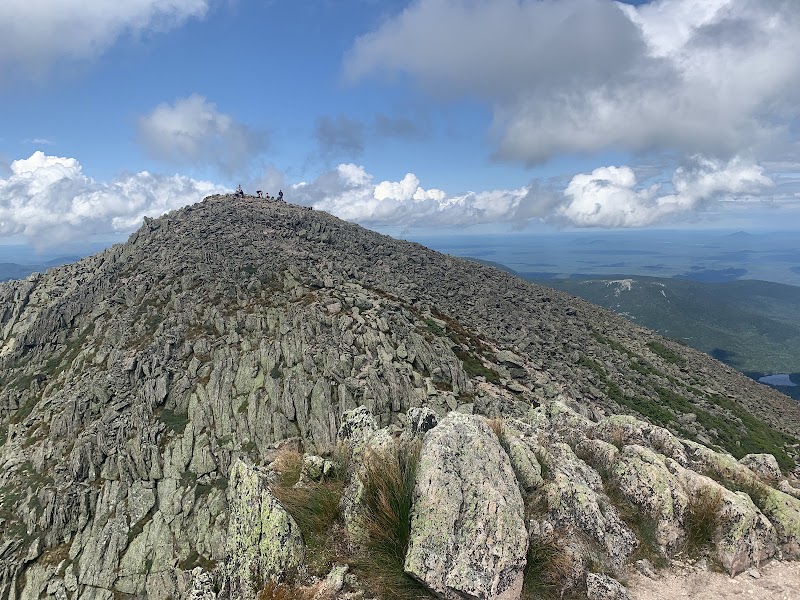Top Scenic Day Hikes Around Mount Katahdin: Exploring the Gateway to Baxter State Park
Mount Katahdin offers some of Maine’s most exhilarating day hikes, ranging from rugged summit climbs to tranquil pond trails. This guide highlights top routes around Baxter State Park’s gateway, blending vivid trail descriptions with practical tips to prepare hikers for an encounter with one of the Northeast’s wildest parks.
Start Early to Beat Weather Shifts
Afternoon thunderstorms are common on Katahdin. Begin your hike before sunrise to maximize safety and daylight.
Wear Sturdy, Supportive Footwear
Trails feature rocky, uneven surfaces and ladders—hiking boots with ankle support help prevent injuries.
Carry Ample Water
Though water sources exist, carrying 3-4 liters depends on trail difficulty; dehydration risks increase with elevation gain and exertion.
Respect Trail Etiquette and Waste Rules
Baxter State Park enforces Leave No Trace. Pack out all trash and stay on marked trails to protect fragile ecosystems.
Top Scenic Day Hikes Around Mount Katahdin: Exploring the Gateway to Baxter State Park
Mount Katahdin stands as the fierce heart of Baxter State Park, daring hikers to engage with its rugged trails and elemental beauty. Each day hike offers a distinct encounter—whether threading through dense pine forests, climbing rocky ledges, or arriving at vistas that command reverence for the vast wilderness beyond. Here are the top scenic day hikes around this formidable peak, balanced with practical advice to help adventurers ready themselves for this demanding but rewarding terrain.
1. The Hunt Trail to Katahdin Summit (Baxter Peak) Distance: 10.4 miles round trip Elevation Gain: 4,200 feet Terrain: Rocky sections, steep ascents, ladders
Starting at the Roaring Brook Campground, the Hunt Trail challenges with steep climbs and narrow ledges where the mountain tests your focus and strength. The summit rewards with panoramic views across Maine’s wild forests and sprawling lakes, where winds whisper the legacy of this fiercely independent land. Be prepared: sturdy hiking boots and plenty of water are essential.
2. Chimney Pond Trail Distance: 4.8 miles round trip Elevation Gain: 2,000 feet Terrain: Forested paths, rocky stretches
This trail meanders upward through firs and spruce, reaching Chimney Pond which sits like a quiet eye amidst the craggy giants. The pond mirrors the cliffs, daring you to pause and absorb the isolation. For those seeking a shorter hike with dramatic scenery, this route is a solid choice. Early starts avoid afternoon storms and busy crowds.
3. Saddle Trail to Pamola Peak Distance: 6.4 miles round trip Elevation Gain: 2,400 feet Terrain: Steep rock faces, exposed ridges
If you want to engage with Katahdin’s wilder edge without summiting, the Saddle Trail leads to Pamola Peak—named after the spirit said to guard the mountain. Exposed ridges push hikers to move with care, the rocks alive under boots as if warning of the ascent’s demands. The final vista looks out to Northern Maine’s endless forest realm, a reward for steady legs.
4. Nesowadnehunk Trail to Nesowadnehunk Camp Distance: 8 miles round trip Elevation Gain: 1,200 feet Terrain: Woodland, gentle grades, river crossings
For a less strenuous but scenic day out, this hike follows the river that flows with a steady voice, daring you to match its pace. Wildflowers and bird calls fill the quieter segments, while crossing wooden bridges invites connection to the wild waterways. Great for those who want solitude with moderate effort.
Preparation Tips: Hydration is non-negotiable—bring at least 2 liters for shorter hikes and 3-4 liters for longer or hotter days. Footwear must firmly grip rocky terrain; waterproof boots with ankle support serve best. Start early to avoid weather shifts, common when afternoon clouds heat the mountain slopes. A light rain jacket and layered clothing will prepare you for sudden changes.
Mount Katahdin's trails are a vivid dialogue with nature—never a mere path but a chance for hikers to meet a wild force uncompromising in its presence. Respect the mountain’s rhythms and hazards, and it will deliver awe without apology. Whether it’s your first or fiftieth hike here, the experience demands focus and rewards vision.
Nearby Trips
All Adventures
Boat Charters
Water Activities
Adventures near Millinocket
Discover the unique and memorable adventures that make Millinocket special.
Frequently Asked Questions
Are dogs allowed on Katahdin's trails?
No, Baxter State Park regulations prohibit dogs on trails to protect wildlife and ensure safety.
What is the safest trail for beginners interested in Katahdin?
The Nesowadnehunk Trail offers a gentler ascent and scenic river views, ideal for less experienced hikers.
When do the park rangers typically close the park for the season?
The main trails are open from late May through mid-October, but access depends on snow and weather conditions.
Are permits required for day hikes on Mount Katahdin?
Day hikers do not require permits, but overnight camping requires a reservation through Baxter State Park.
What wildlife might I encounter during day hikes?
Expect to see white-tailed deer, black bears, moose, and an array of bird species. Keep a safe distance and store food properly.
Is cellphone reception reliable on Katahdin trails?
Signal is spotty to non-existent in many areas. Always tell someone your plans before heading out.
Recommended Gear
Hiking Boots
Provides traction and support necessary for rugged, uneven trails.
Hydration System or Water Bottles
Keeps you hydrated in variable conditions; bring filtration if you plan on refilling.
Layered Clothing
Allows adjustment to changing temperatures, especially important at higher elevations.
Rain Jacket
Protects you from sudden rain and wind, common in mountain weather patterns.
Local Insights
Hidden Gems
- "The Pool, a quiet, reflective water body on the Hunt Trail offering a serene break from steep climbing"
Wildlife
- "Black bears frequent lower wooded areas, while peregrine falcons nest on higher cliff faces"
History
"Katahdin is sacred to the Penobscot Nation and served historically as a landmark for logging and outdoor pioneers."

